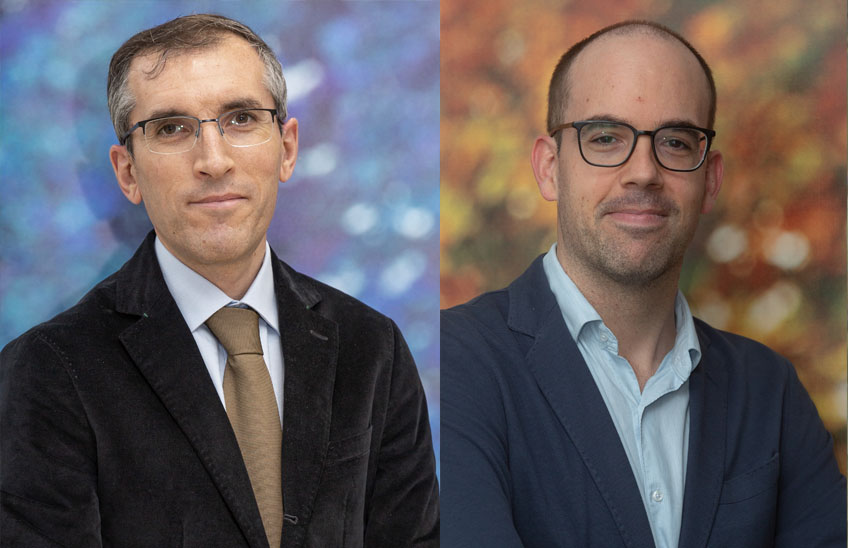Two projects on biological causality and the idea of Spain in the contemporary discussion , selected in the second call of ICS
They are led by Miguel García-Valdecasas, from group 'Mente-Cerebro', and Juan Pablo Domínguez, from 'Religion and Civil Society'.

20 | 09 | 2022
The Institute for Culture and Society (ICS) has selected two proposals in its second call for projects. They are 'New approaches to biological causality: ecological psychology, enactivism and teleodynamics' and 'The idea of Spain in the contemporary politico-religious discussion '. Both research projects will begin in the academic year 2022-2023 and will end in 2024-2025.
Four proposals were submitted to this call for proposals, whose assessment was sent to position by the Subdirección de Coordinación y assessment of the Agencia Estatal de research. The two projects selected were the ones that received the highest scores from the Agency.
'New approaches to biological causality: ecological psychology, enactivism and teleodynamics' is led by Miguel García-Valdecasas, from group 'Mind-Brain'. This project is located at the intersection of three perspectives in the field of nature and biologyPhilosophy that have re-examined the dynamics of living systems: ecological psychology, enactivism and teleodynamics.
The project starts from the following general hypothesis: to understand biological causality in all its breadth and depth, it is necessary to understand and define the characteristics that a self-organized system must have, which is far from the conditions of thermodynamic equilibrium, to constitute a synergistic system in which its components enter into a relationship of mutual constriction.
The three perspectives have in common their interest in systems far from equilibrium, the conviction that life is result of a transition that gives rise to a new regime of organization, and the goal of developing a naturalized view of living systems. This project aims to define how each of them do so, pointing out their differences and limitations, as well as their possibilities of integrating with each other to overcome the inherent limitations of each perspective.
Discursive construction of Spanish identity
'The idea of Spain in the contemporary politico-religious discussion ' is led by Juan Pablo Domínguez Fernández, from the group 'Religion and Civil Society'. The project will analyze the role of the discourses on Spain in the politico-religious debates in Europe and America in the Contemporary Age. It will analyze, above all, three aspects of this phenomenon: the weight of the idea of Spanish intolerance in Western liberalism and illiberalism (1776-1940); the role of the idea of Spain in the ideologies confronted during the Bourbon Restoration (1874-1931); and the uses of the image and history of Spain in the American discussion on Catholicism, modernity and American identity (1936-1958).
The starting hypothesis is that the idea of Spain (i.e., the discursive construction of Spanish identity) has not been a simple result of Spanish patriotism or Hispanophobic xenophobia. More specifically: that the image of Spain and the modern ideal of religious tolerance were constructed by mutual opposition and that, at least until the Second Vatican Council, Hispanophiles and Hispanophobes presented Spain as the main model of Catholic confessionalism, as opposed to both the secularist model of the French Republic and the "separatist" model of the USA.
The project will highlight the central role played in the intellectual history of the West by national images such as Dutch tolerance, Spanish intolerance, American "separatism" or French secularism.
